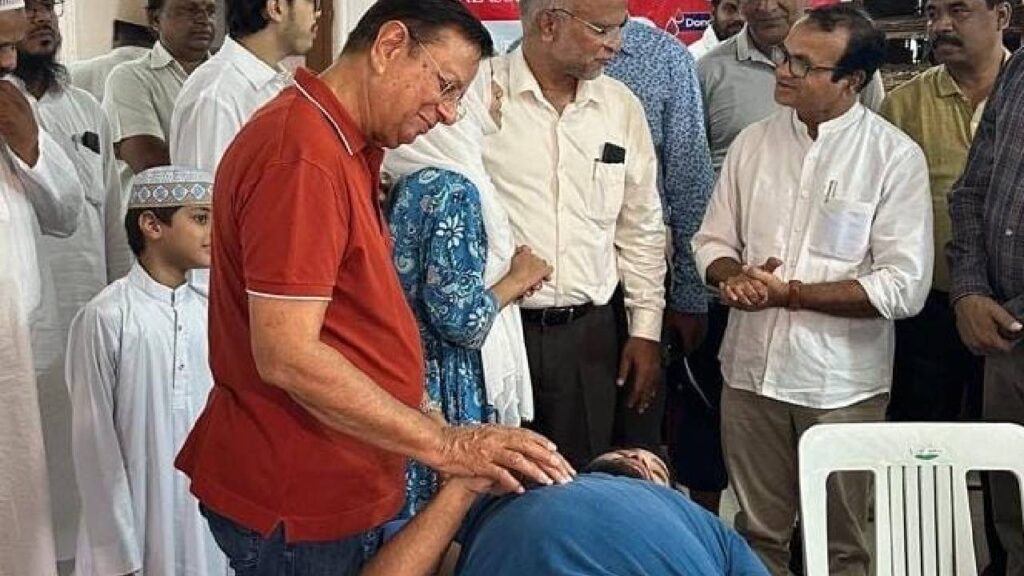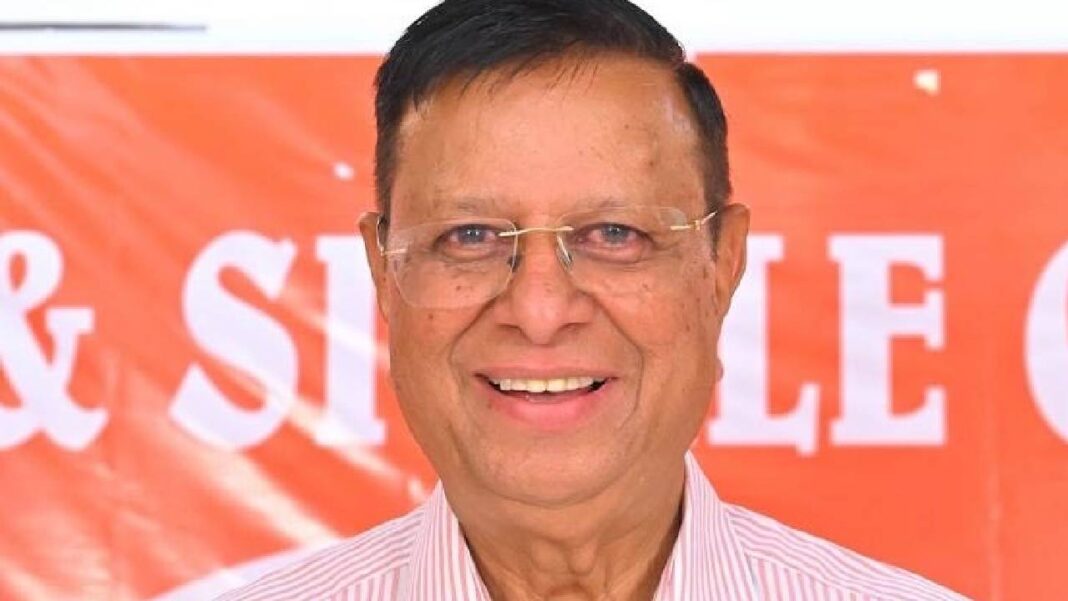In an exclusive interaction, Dr. Chandrakant Agarwal, President of the Thalassemia & Sickle Cell Society (TSCS), Hyderabad, outlines the rising concern of thalassemia in Telangana and the society’s pioneering efforts to curb it. From free comprehensive treatment and genetic counselling to initiating India’s first thalassemia-free district in Mahbubnagar, Dr. Agarwal sheds light on the urgent need for mandatory HbA2 screening, public awareness, and systemic policy changes to prevent the birth of affected children
Tejal Sinha
tejal.sinha30@gmail.com
In Telangana, particularly Hyderabad, thalassemia remains a pressing genetic health concern. “Every year, an estimated 250 to 500 children are born with thalassemia in the state,” says Dr. Chandrakant Agarwal, President of the Thalassemia & Sickle Cell Society (TSCS). Despite awareness campaigns led by public and private entities, challenges remain in terms of cultural acceptance, early screening, and long-term care. “Stigma, low awareness, and cultural hesitations still lead to reluctance in acknowledging carrier status or undergoing timely testing,” he adds.

TSCS has emerged as a beacon of hope for families grappling with thalassemia and sickle cell anemia. Based in Hyderabad, the organization offers a comprehensive suite of free services for affected children. “We provide regular consultations with specialists, safe and timely blood transfusions, and medications supported by the Arogyasri scheme,” explains Dr. Agarwal.
The society also facilitates a battery of essential tests—biochemical, hematological, serological—and advanced diagnostics such as ECG, ECHO, X-ray, Ultrasound, and MRI, the latter of which has already been conducted for over 1,000 children. Moreover, genetic counselling and psychological support for families play a central role in TSCS’s mission.

Perhaps most notably, TSCS aids bone marrow transplantation (BMT)—the only curative treatment for thalassemia—in collaboration with partner hospitals and with funding from corporate sponsors. “So far, we have supported 167 children through BMT,” shares Dr. Agarwal. The organization also ensures the provision of free meals to patients and accompanying family members during treatment visits. Additionally, TSCS is initiating prenatal diagnostic (PND) services at its centre to help prevent the birth of children affected by the disorder.
“Prevention is the most effective approach,” says Dr. Agarwal, emphasizing that the eradication of thalassemia in Telangana and Andhra Pradesh is possible through extensive screening and genetic counselling. TSCS strongly advocates for mandatory HbA2 testing—a simple blood test that identifies thalassemia carrier status—for all pregnant women during their first trimester.
“An HbA2 level above 3.5% indicates a thalassemia minor or carrier state,” explains Dr. Agarwal. “If both parents are carriers, there is a 25% chance that their child will be born with thalassemia major, which is life-threatening.” He stresses that this form of thalassemia is 100% preventable if such at-risk couples are identified early and offered prenatal diagnostic options.
TSCS has actively initiated antenatal screening programs in Modern Government Maternity Hospital at Petlaburj, and across PHCs in Medchal-Malkajgiri and Mahbubnagar districts, with upcoming expansions planned in Khammam and Asifabad. These initiatives not only aim to increase awareness but also embed screening into routine maternal care.
One of TSCS’s most commendable milestones is Mahbubnagar becoming Telangana’s first Thalassemia-Free District. This was achieved through a systematic and community-driven approach in collaboration with the district administration.
Dr. Agarwal outlines the steps: “We obtained permission to conduct antenatal screening in all PHCs of the district. We then trained ASHA workers, Anganwadi staff, and PHC doctors to implement the screening at the community level.” Every pregnant woman visiting a PHC was tested early, and if found to be a carrier, her spouse was tested as well. In cases where both partners were carriers, they were thoroughly counselled about the risks and offered prenatal diagnostic options.
“Public education was also critical,” he adds. “We invested heavily in spreading awareness about the condition and the importance of prevention.”
While BMT is currently the only cure for thalassemia major, Dr. Agarwal is clear that it’s not a silver bullet due to cost and donor limitations. “The procedure involves replacing the defective blood-forming stem cells in the patient with healthy cells from a fully HLA-matched donor. This enables the patient to produce normal hemoglobin and eliminates the need for lifelong transfusions.”
For those undergoing transfusions every 2–3 weeks, blood availability is critical. Dr. Agarwal points out that despite improved awareness, Hyderabad still faces seasonal shortages, especially during festivals and holidays. “This is where TSCS steps in,” he says. “We conduct over 225–250 blood donation camps annually across Telangana and Andhra Pradesh.”
These camps are hosted in collaboration with educational institutions, temples, mosques, corporates, and NGOs to maintain a stable blood supply for the thousands of patients under TSCS care.
While thalassemia remains a global health challenge, countries such as Cyprus, Greece, and Italy have made tremendous progress by implementing nationwide screening, premarital testing, and prenatal diagnosis. Dr. Agarwal believes India can replicate this success by embracing similar strategies.
“We must move towards universal carrier screening, especially in high-risk communities, mandatory HbA2 testing for pregnant women, and widespread public awareness campaigns,” he urges. The integration of genetic counselling and accessible prenatal diagnosis is also essential. TSCS’s consistent and impactful work has not gone unnoticed. The Thalassemia International Federation (TIF) recently selected Kamala Hospital and Research Centre/TSCS as its India Collaborating Partner. This partnership underscores the organization’s role in aligning with global standards for thalassemia care.
“This recognition will help us scale our impact further,” says Dr. Agarwal. “The collaboration will open doors for international training programs, cutting-edge research, and wider dissemination of global best practices in India.”




